
Zaragoza Summer School
Industry session
Paul-Elliot Anglès d'Auriac and Ulysse Gérard
Tarides in a few words
Founded in January 2018
Business based on Open Source
An academic background: University of Cambridge, ENS,
inria, IIT Madras
and industry/startup veterans: XenSource, Citrix, Unikernel
Systems, Docker
Around 70 software engineers specialised in systems, programming languages and security

At Tarides, we develop products centered on security
Reduce bugs
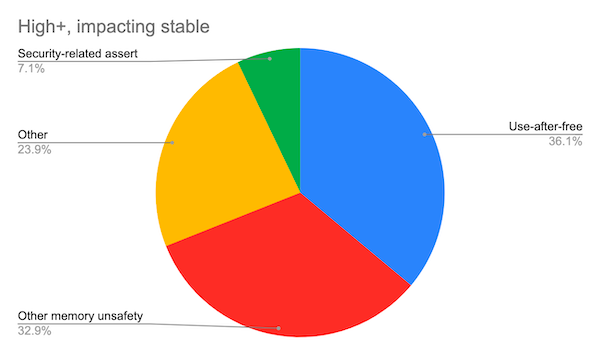
More than 70% of security bugs are memory safety issues (Microsoft, Chromium, Android, public 0-days exploits)
OCaml compiler ensures to be free from memory issues
OCaml type system allows to
catch many bugs at compilation time
Reduce the attack surface.
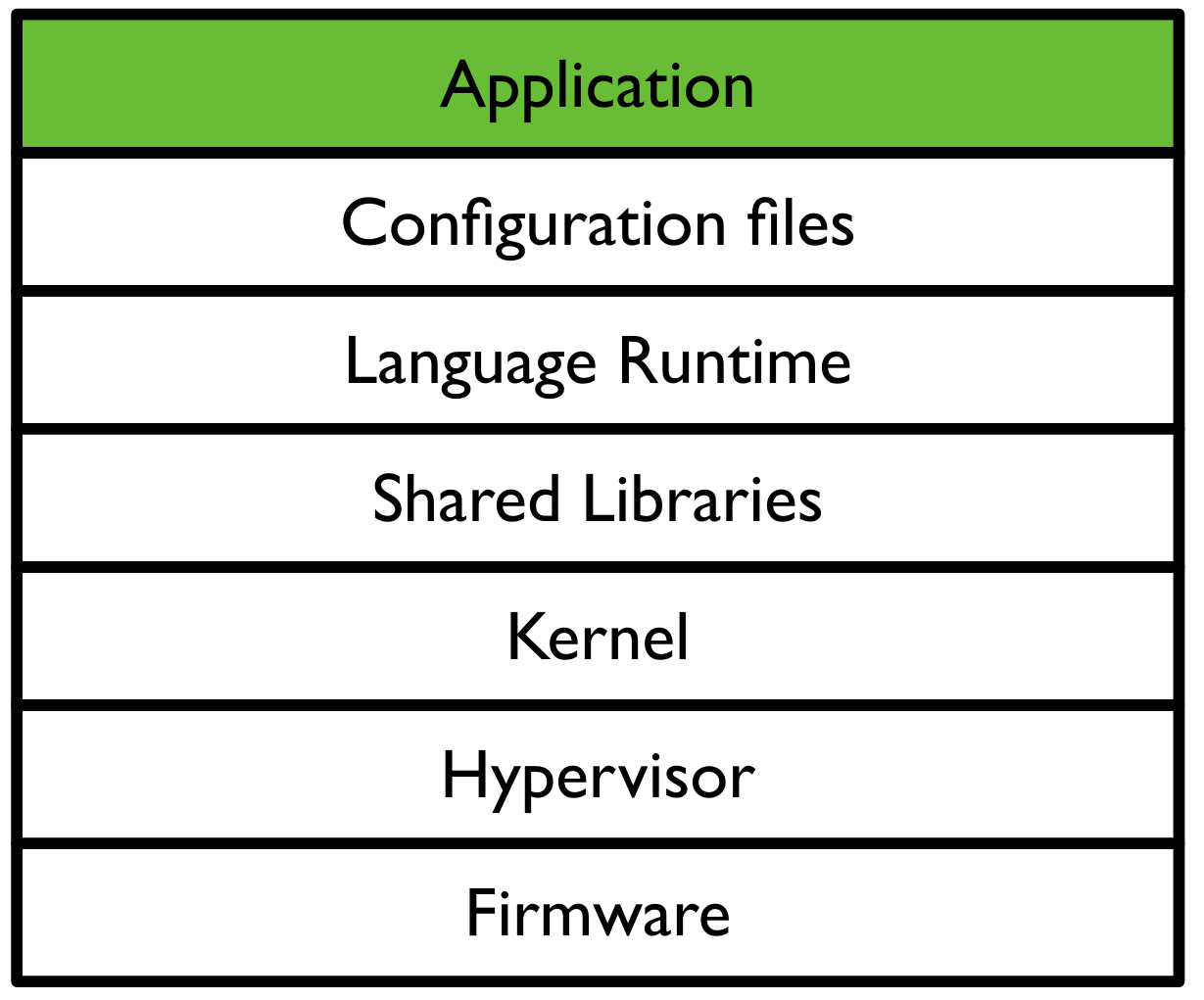
Application code is a small % of the runtime environnement
OCaml code can be compiled to unikernels, using MirageOS
Use offline first and decentralized approach
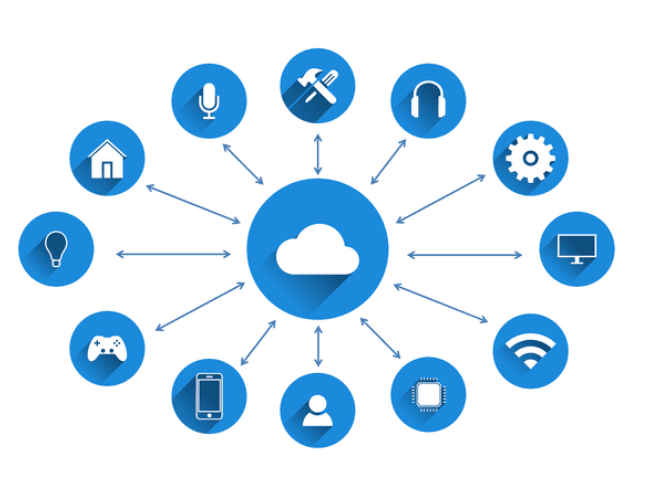
Cloud-centric architecture is fundamentally flawed with security, data privacy and transparency issues
Tarides develops Irmin, a distributed key-value git-like database, written in OCaml.
Tarides' products
- The static analysis catch many bugs at compile-time
- The developper tools allows for easy entry to a large codebase
- The module system facilitates the multiplicity of backends
-
js_of_ocamlallows to write websites and editor extensions in OCaml


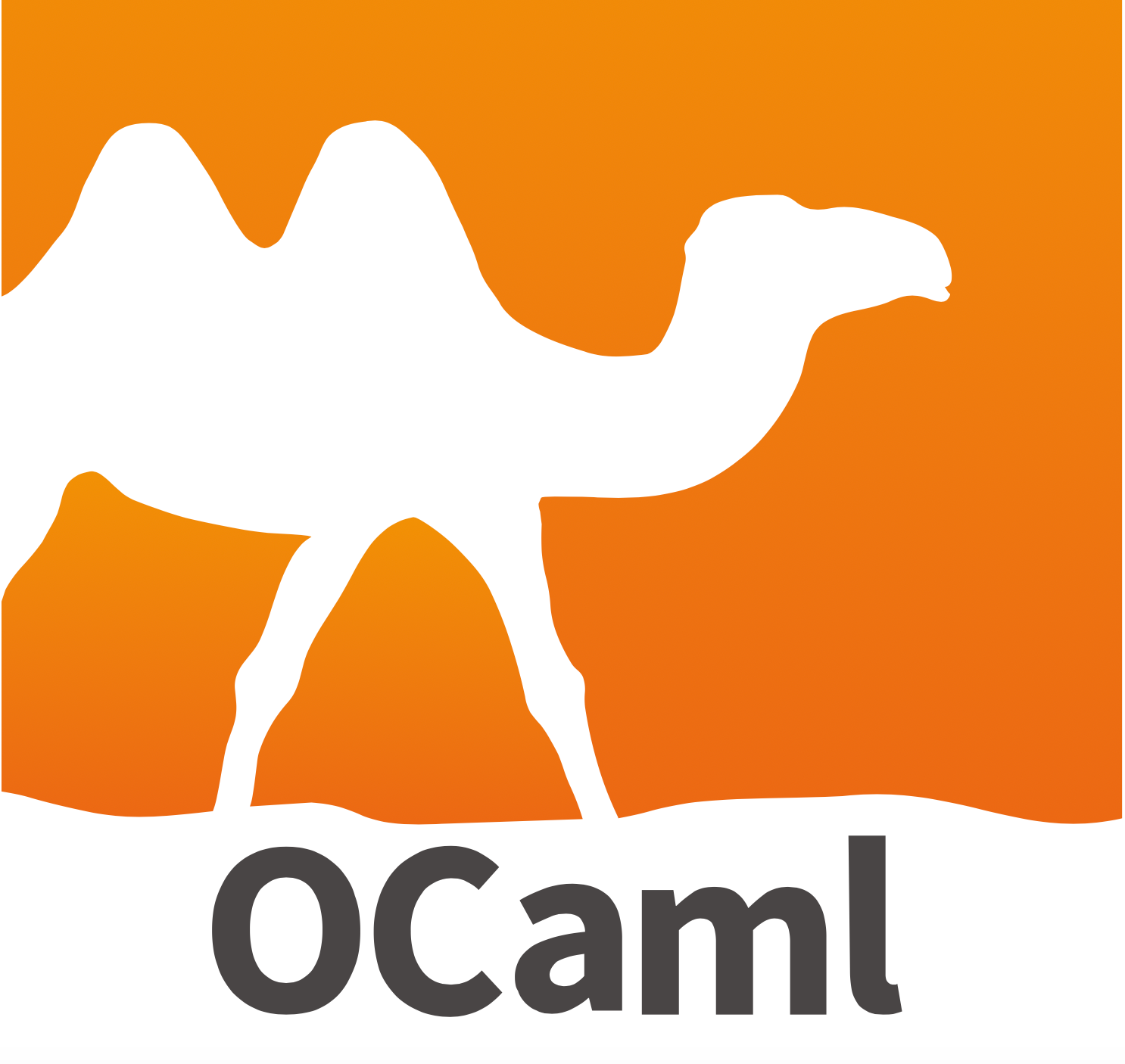
MirageOS: a library operating system

Unikernel compiler: Instead of compiling to an executable to be run inside an OS, compiles to a unikernel.
Library operating system: MirageOS ecosystem includes as libraries all the functionalities usually provided by the OS: time, networking, storage.
Advantages:
- Small surface of attack
- Lightweight and portable
- Written using a high-level language. (Everything has to be rewritten!)
- Static analysis, free from memory exceptions...
- Parametrization by implementation!
module HelloWorld (Time : Mirage_time.S) = struct
let start _time =
Logs.info (fun f -> f "Waiting one second...");
Time.sleep_ns (Duration.of_sec 1) >>= fun () ->
Logs.info (fun f -> f "Hello World!");
Lwt.return_unit
end
(* ARP implementation is parametrized by the Ethernet
and Time implementation *)
module Make (Ethernet : Ethernet.S) (Time : Mirage_time.S) : sig
include S
val connect : Ethernet.t -> t Lwt.t
end
The piñata experiment

-
February 10th 2015:
-
A MirageOS unikernel implementing the HTTPS protocol is set up.
-
In the unikernel, there are 10 bitcoins which will be transfered if given an appropriately signed certificate.
-
An anouncement is made, calling hackers to break into the unikernel and get the bitcoins.
-
The code is open source, and all attack vectors are legit (except social engineering).
-
-
March 18th 2018:
-
Many attemps: More than 500 000 accesses to the Piñata website, and more than 150,000 attempts at connecting to the Piñata bounty.
Some found software bugs
-
No bugs were exploitable
-
Irmin: a distributed git-like store
- A key-value store.
-
Built with the same principle as
git, with support for: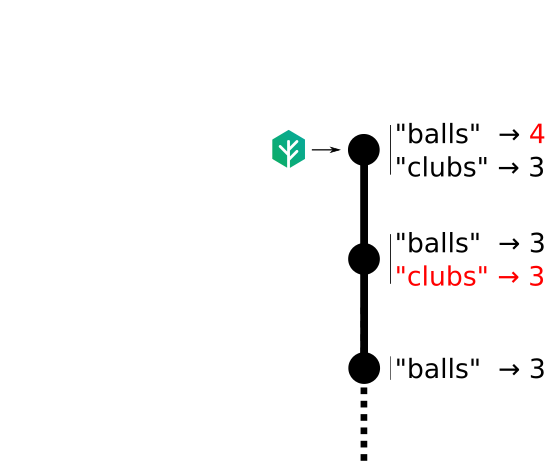
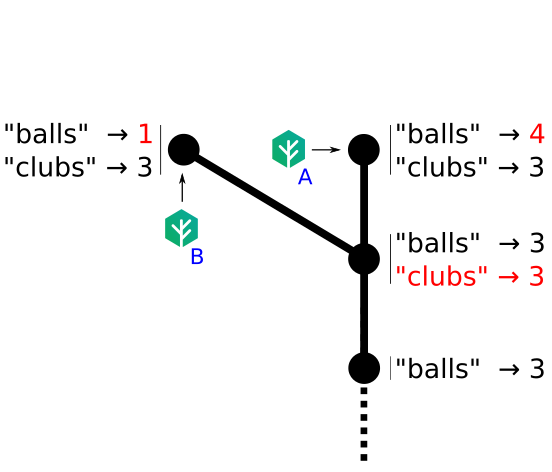
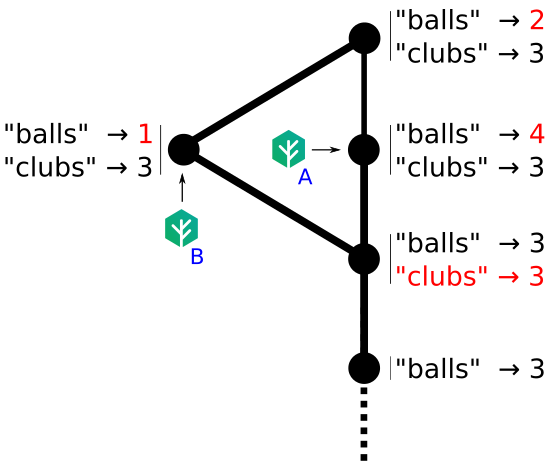
- Browsing the history.
-
Defining a merging strategy
Example with a counter.
- A: "balls" → 4
- Meanwhile, B: "balls" → 1
-
Merging strategy "balls" →
2 = 3 + (4-3) + (1-3)
- Distributed and works offline!
- FS
- Memory
- Git
- IndexedDB to run Irmin in the browser
- ...

-
Defining and maintaining a set of "official" tools to make
programming in OCaml a pleasant experience, including:
- Opam, the package manager
- Dune, the build system
- Merlin, and the editor extensions for OCaml
- odoc, the documentation generator
- Ppxlib, a metaprogramming framework
- ocamlformat, the code formatter
- dune-release, the package publisher
- UTop, an enhanced OCaml toplevel
- Mdx, for litterate programming and example-testing

-
OCaml 5 is a major release of OCaml which will integrate two
main additions:
- Algebraic effects for (amongst other things) concurrent programming
- Domains for multicore programming.
-
Tarides is working on having the ecosystem ready:
- all tools have to be compatible,
- tutorials available,
- a low entry bar, ...
Other initiatives
-
OCE, an initiative providing OCaml formation, startup contest, ...
-
Working for diversity and inclusion in OCaml community:
- Ada Tech School: a programming school designed for women
- Recurse Center: a self-directed, community-driven educational retreat for programmers
- She Can Code: SheCanCode's mission is to close the Tech Gender Gap
- Oxbridge Women in Computer Science: an annual one-day event
- Outreachy: provides internships to people subject to systemic bias and impacted by underrepresentation in the technical industry where they are living.